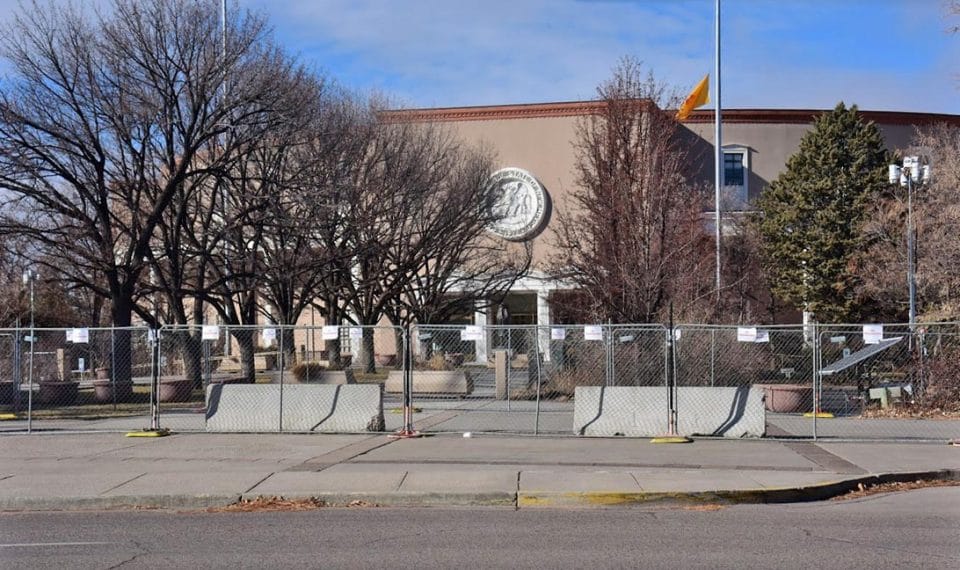
In the last month, New Mexico and the United States as a whole have witnessed unprecedented attacks on the traditional energy sector. Nationally, President Biden’s ban — for now, just described as a pause — on new oil and gas leases on federal lands has been well documented. So too has his revoking of the permit for the Keystone XL pipeline.
While such decisions are undoubtedly popular with radical environmentalists and their well-funded allies, it is hard to see how they — or anyone likely to follow them — will achieve the reductions in CO2 emissions necessary to make any difference to the climate. Look, for example, at the impact of the Keystone XL pipeline decision. With no available pipeline, Canada and its oil producers will simply load their oil onto trains or trucks, relying instead on modes of transport that are more risky and less energy-efficient. Indeed, doing so will involve higher greenhouse-gas emissions than the pipeline would have, especially considering the pipeline developers’ recent promise to use only renewable energy to operate the project.
Overall, less than 10 percent of American oil and gas comes from federal lands. Cutting production from them won’t have a real impact on producers on private and state lands, nor will it reduce demand for foreign oil. Nevertheless, this new policy could end up inflicting significant economic pain on an already shaky U.S. economy.
Even if a relatively small amount of U.S. oil and gas production comes from federal lands, bans or restrictions there will have a disproportionate effect on a good number of states and their economies (like my own in New Mexico). Half of New Mexico’s oil and gas production — much of it fracked — is on federal land. Long-term curtailment of oil and gas drilling on federal lands would devastate the state’s budget.
Not to be outdone by the Biden administration, the Democrat-dominated legislature here in “deep blue” New Mexico is considering a number of proposals of their own. (Mind you, the state is one of the poorest in the Union and, thanks to fracking, is the country’s third-largest oil producer.) Chief among them is legislation that would require all new construction (homes and schools) in New Mexico to incorporate solar panels and mandate that 75 percent of all state-government vehicles be electric-only. Another bill would require dramatic reductions in “carbon intensity” for vehicles purchased by everyday New Mexicans. The technology to reduce carbon-intensity of New Mexico vehicles is left unsaid because the regulation would oblige fuel producers to work this out for themselves.
Writing for the Albuquerque Journal, two Democratic state legislators explained the proposals:
By requiring fuel providers that refine, blend, make or import fuel used in New Mexico to gradually reduce the carbon intensity of the transportation fuel itself, we can reduce emissions by 4.7 million metric tons in carbon dioxide equivalent by 2040. That’s like taking 44,000 cars off the road every year for 15 years. A clean fuel standard would not apply to retail gas stations or cause cost increases at the pump.
Yet, the heavy-handed, economy-killing efforts in New Mexico and in various state capitals across the country will do little to rein in global CO2 emissions. In fact, CO2 emissions are already being curbed in the United States through a combination of market forces and government policies. The real problem is that emissions are exploding elsewhere, most notably in China.
In late 2020, Forbes noted that U.S. CO2 emissions already comply with the Paris agreement. Goosed by an 11 percent drop in CO2 emissions in 2020 due to COVID-19–induced travel reductions, the United States has seen emissions drop since the mid 1980s. Nowadays, despite a population that is 40 percent larger than it was in the mid 1980s, U.S. CO2emissions are approximately the same as they were back then. This is a remarkable feat.
Indeed, the combination of a long-term shift in electricity generation from coal to natural gas (in no small part thanks to fracking), along with the energy efficiency generated both by market competition and regulatory pressure, fuel-mileage mandates, and the Clean Air Act, have made the United States a more CO2-efficient national economy.
China, on the other hand, is not just rapidly increasing CO2 emissions, it is massively expanding coal-fired electricity production. According to Voice of America, “China put 38.4 gigawatts (GW) of new coal-fired power capacity into operation in 2020, more than three times the amount built elsewhere around the world and potentially undermining its short-term climate goals.”
Furthermore, according to research released on Wednesday by Global Energy Monitor, China’s coal-fired fleet capacity rose by a net 29.8 GW in 2020 (including decommissions), even as the rest of the world made cuts of 17.2 GW.
China, which still has millions of citizens living in real poverty, certainly has a right to develop its economy. But if the Biden administration is serious about addressing climate change, it ought to use the bully pulpit to cajole China to move toward lower CO2 intensity. After all, China is already the global “leader,” with CO2 emissions approximately doubling those of the United States. Those emissions rose even during the pandemic year of 2020.
Even if the Biden administration and states such as New Mexico make a concerted and focused effort to reduce CO2emissions (an open question to say the least), the United States won’t be able to halt climate change. Any CO2 reduction we make is only displaced by a doubling from China, who seems more serious about developing its own economy than the Biden administration and many “blue” states like New Mexico are about theirs.
President Joe Biden and New Mexico governor Michelle Lujan Grisham telling us to pay more for energy while destroying thousands of energy jobs is a hard pill to swallow even if we were to make serious progress toward achieving our climate goals. But to do immense damage to the U.S. and New Mexico economies while allowing American progress on CO2 emissions to be undermined by our economic and geopolitical rivals in China is woefully misbegotten.



 Legislature in 2020 and stated that RGF was instrumental in providing him with data and analysis on important issues, which served as the foundation of many of the opinions he expressed in public. Now that the campaign is over, Hampton noted that RGF’s role is even more important, as RGF continues to try to shape culture and worldview in support of the next election cycle.
Legislature in 2020 and stated that RGF was instrumental in providing him with data and analysis on important issues, which served as the foundation of many of the opinions he expressed in public. Now that the campaign is over, Hampton noted that RGF’s role is even more important, as RGF continues to try to shape culture and worldview in support of the next election cycle. based in Albuquerque. She I was born in Phoenix, AZ and raised in New Mexico. great grandparents founded Cliff’s Amusement Park in 1959.
based in Albuquerque. She I was born in Phoenix, AZ and raised in New Mexico. great grandparents founded Cliff’s Amusement Park in 1959.









